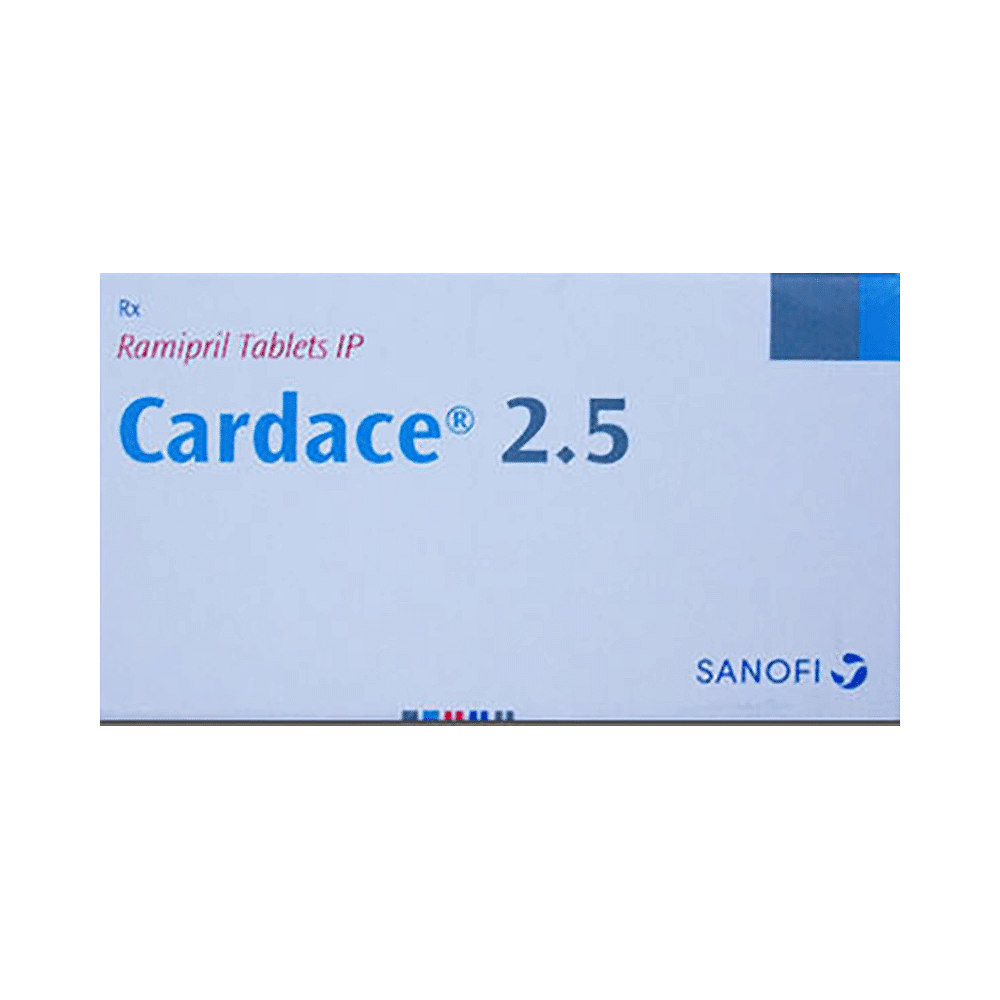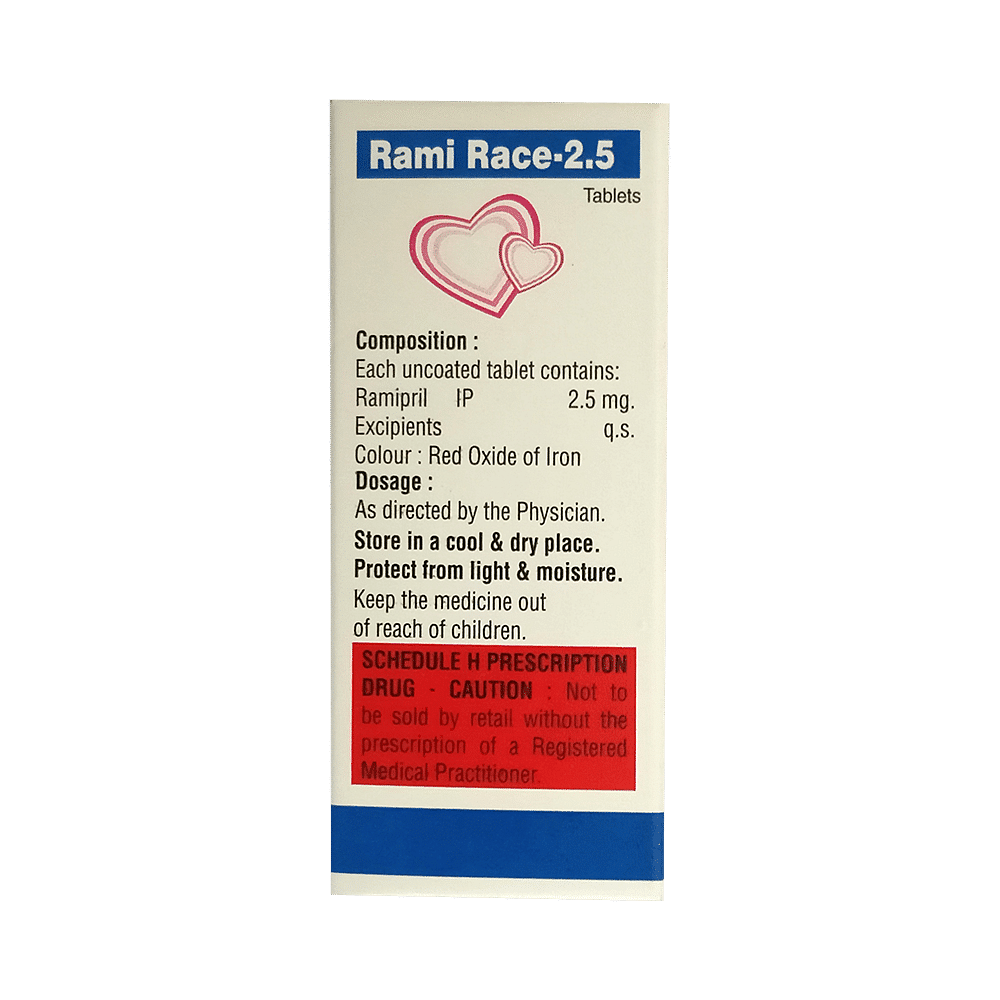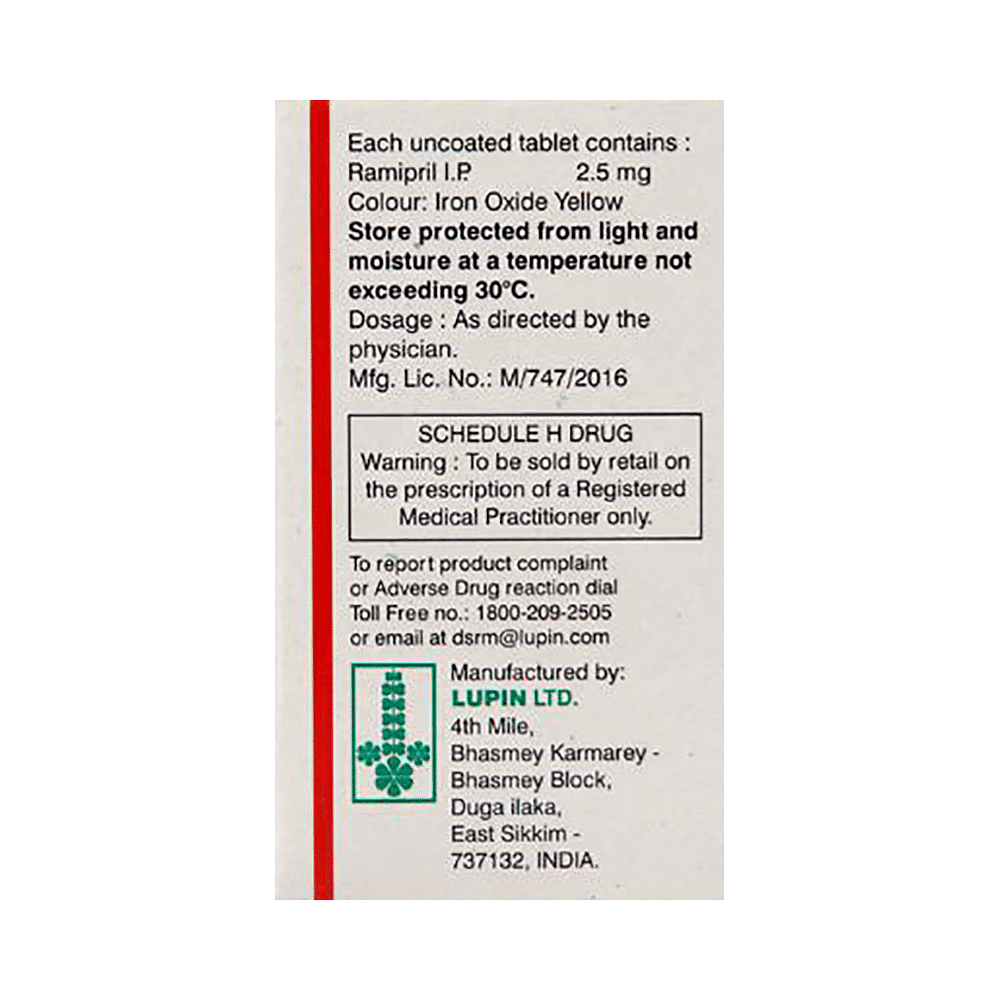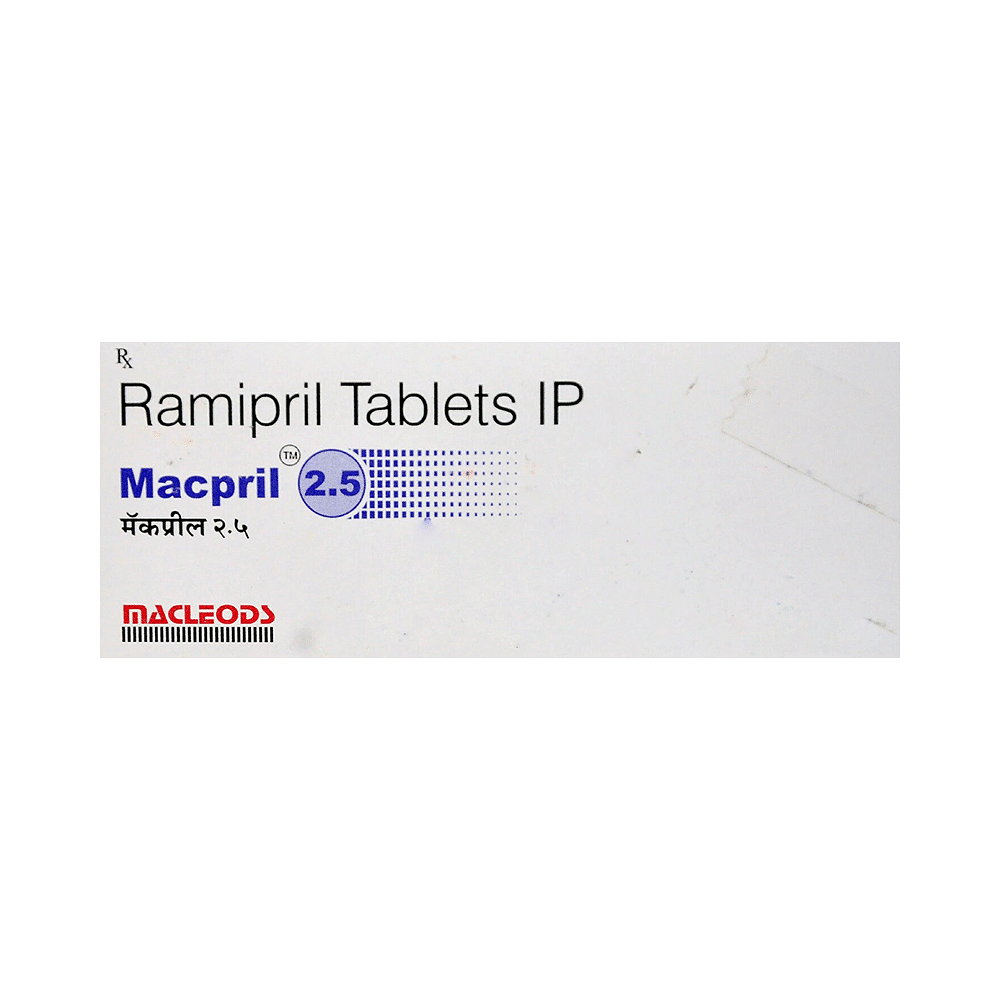
Misry 2.5mg Tablet
Manufacturer
Biocin Healthcare
Salt Composition
Ramipril (2.5mg)
Key Information
Short Description
Misry 2.5mg Tablet is widely used to treat high blood pressure and heart failure and may even be prescribed after a heart attack. It also lowers the chances of having a heart attack or stroke.
Dosage Form
Tablet
Introduction
Misry 2.5mg Tablet may be prescribed either alone or in combination with other medicines. It can be taken on an empty stomach or with a meal. This medicine should preferably be taken at the same time each day to get the maximum benefit. It is important to continue taking it regularly even if you feel well or even if your blood pressure is controlled. Most people with high blood pressure do not feel any symptoms but if you stop taking this medicine your condition could get worse. This is a widely used medicine and is considered safe for long-term use. Making some changes in your lifestyle will also help lower your blood pressure. These may include regular exercise, losing weight, not smoking, reducing alcohol intake, and reducing the amount of salt in your diet as advised by your doctor.
Directions for Use
Take this medicine in the dose and duration as advised by your doctor. Swallow it as a whole. Do not chew, crush or break it. Misry 2.5mg Tablet may be taken with or without food but it is better to take it at a fixed time.
Safety Information
Side Effects
No common side effects listed.
Alcohol Warning
Misry 2.5mg Tablet may cause excessive drowsiness with alcohol.
Breastfeeding Warning
Misry 2.5mg Tablet is probably unsafe to use during breastfeeding. Limited human data suggests that the drug may pass into the breastmilk and harm the baby.
Pregnancy Warning
Misry 2.5mg Tablet is unsafe to use during pregnancy as there is definite evidence of risk to the developing baby. However, the doctor may rarely prescribe it in some life-threatening situations if the benefits are more than the potential risks. Please consult your doctor.
Interacting Medicines
Allopurinol Amiloride Azathioprine Bemiparin
How it works
Misry 2.5mg Tablet is an angiotensin converting enzyme (ACE) inhibitor. It works by reducing stress on the heart and relaxing blood vessel so that blood flows more smoothly and the heart can pump blood more efficiently.
Quick Tips
Misry 2.5mg Tablet can make you feel dizzy for the first few days, so rise slowly if you have been sitting or lying down. You can also prefer taking it at bedtime to avoid dizziness throughout the day. Let your doctor know about any cough or throat irritation that does not go away. It may increase the level of potassium in blood. Avoid taking potassium supplements and potassium-rich foods such as banana and broccoli. Inform your doctor if you are pregnant, planning pregnancy or breastfeeding.
Related Medicines

Cardace 2.5 Tablet

Rami Race-2.5 Tablet

Ramistar 2.5 Tablet

Macpril 2.5 Tablet

Hopace-2.5 Tablet

Remipride 2.5mg Tablet

Myopril 2.5mg Tablet

Hopril 2.5mg Tablet

Reopres 2.5mg Tablet

Nexrami 2.5mg Tablet
Frequently asked questions
Why was I prescribed Misry 2.5mg Tablet for heart failure?
Misry 2.5mg Tablet, an angiotensin-converting enzyme (ACE) inhibitor, helps relax and widen blood vessels, reducing the workload on the heart. It is also used to lower blood pressure and prevent stroke. Consult your doctor for more information.
Can Misry 2.5mg Tablet increase potassium levels?
Yes, Misry 2.5mg Tablet may increase potassium levels, especially in patients with uncontrolled diabetes mellitus, kidney problems, dehydration, or those using potassium salts or medicines that increase potassium levels. Regular blood tests are recommended to monitor potassium levels.
When can I expect my blood pressure to be normal after starting Misry 2.5mg Tablet?
Misry 2.5mg Tablet may take a few hours to reduce blood pressure, but you may not notice any difference. It may take a few weeks for blood pressure to be fully controlled. Do not stop taking the medicine, and consult your doctor if you have any concerns.
Why did I develop a dry cough after taking Misry 2.5mg Tablet?
Misry 2.5mg Tablet can cause a persistent dry cough that may not be relieved by medication. Consult your doctor if the cough bothers you or interferes with your sleep, as an alternative medicine may be recommended. The cough may take a few days to a month to resolve after stopping the medication.
What if I accidentally took a 25mg Misry 2.5mg Tablet instead of one 5mg tablet?
You may experience lightheadedness, dizziness, a slow pulse, and even fainting. Seek immediate medical attention or ask a relative or friend for help.
Will there be any problem if I take Misry 2.5mg Tablet before surgery?
Inform your doctor that you are taking Misry 2.5mg Tablet. It may reduce blood pressure when used with a general anesthetic. Your doctor may advise you to stop taking it 24 hours before surgery.
Can Misry 2.5mg Tablet affect my fertility?
There is no evidence that Misry 2.5mg Tablet affects fertility in both men and women. However, consult your doctor before planning a pregnancy, as Misry 2.5mg Tablet is not recommended during pregnancy.
Does Misry 2.5mg Tablet affect blood sugar levels in patients with diabetes?
Yes, Misry 2.5mg Tablet may affect antidiabetic medicines and insulin, potentially lowering blood sugar levels. Regularly check your blood sugar levels and consult your doctor if you have any concerns.
I have been taking Misry 2.5mg Tablet for blood pressure, but I have developed a sore throat and fever. Can I stop taking it?
No, do not stop taking Misry 2.5mg Tablet suddenly, as this may cause a sudden increase in blood pressure, which can be harmful. Consult your doctor and get a blood test done to check for decreased white blood cell count. If your investigations are normal, you can continue taking Misry 2.5mg Tablet. Ask your doctor for alternative blood pressure medication.
Is it safe to take Misry 2.5mg Tablet for a long time?
Yes, Misry 2.5mg Tablet is safe and works best when taken for a long time. However, long-term use may affect kidney function. Your doctor will monitor your kidney function with regular blood tests.


